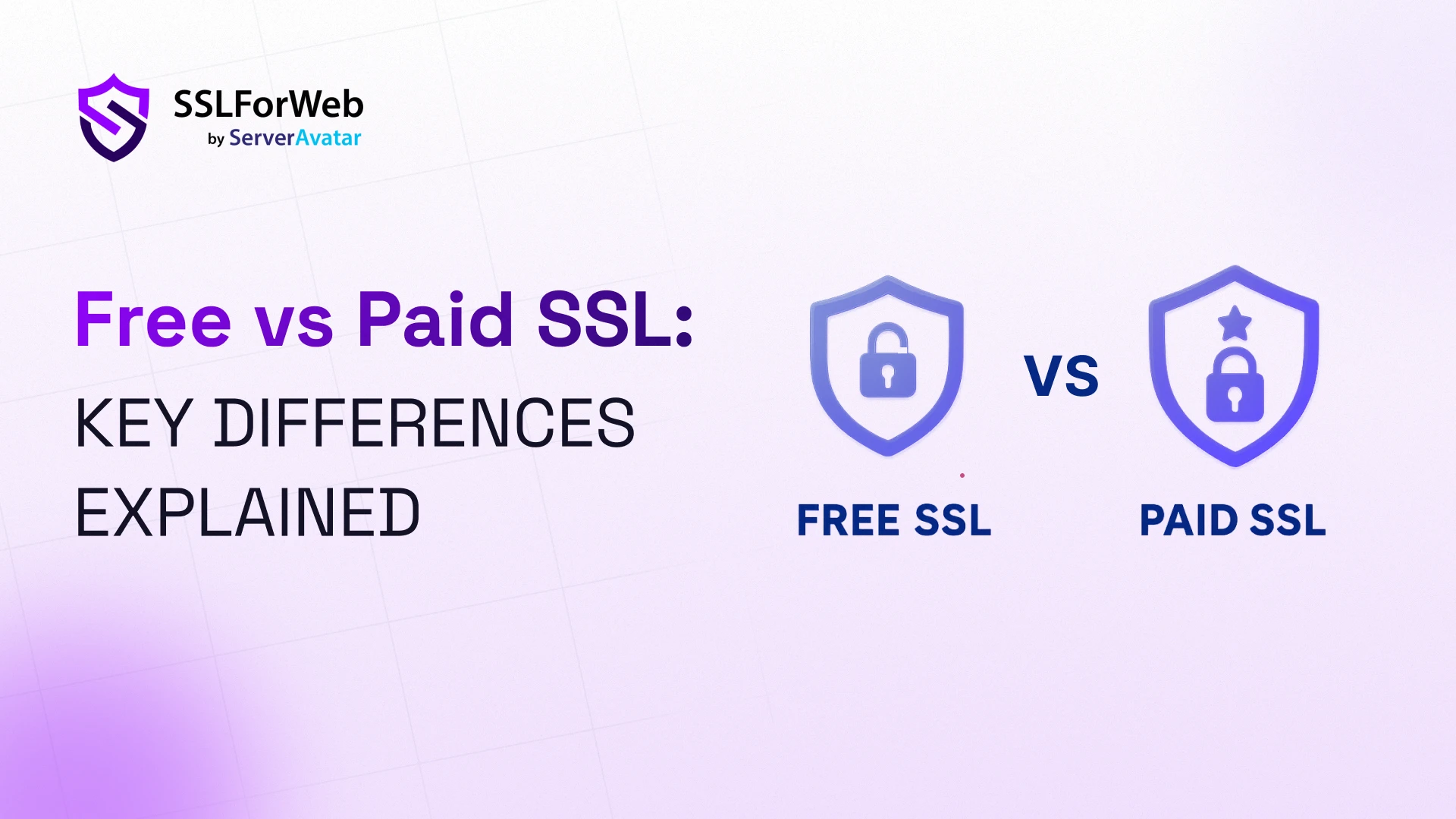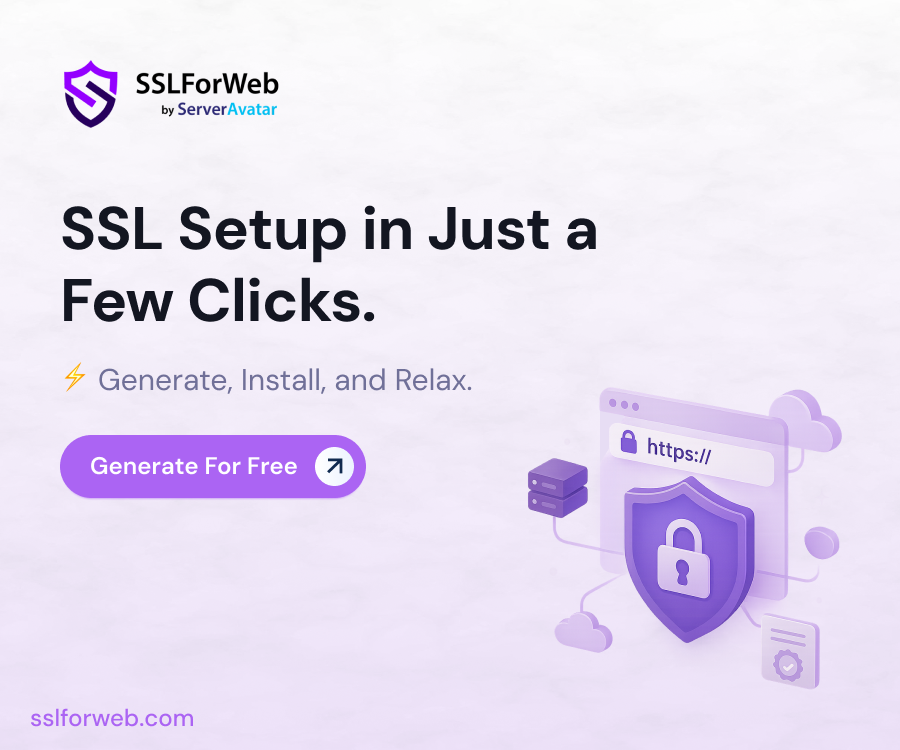Free vs Paid SSL is a crucial consideration in today’s digital world, where online security is no longer optional but a necessity. Whether you’re running a personal blog, an e-commerce store, or a business website, protecting your visitors’ data builds trust and improves your website’s credibility. At the heart of website security lies the SSL certificate (Secure Sockets Layer), a digital protocol that encrypts the connection between a visitor’s browser and your server.
But when you start looking for SSL certificates, you’ll quickly notice two types: Free SSL and Paid SSL. Which one should you choose? Are free SSL certificates secure enough, or do paid options provide essential features you can’t ignore?
In this guide, we’ll break down everything you need to know about Free vs. Paid SSL, including their key differences, benefits, limitations, and which option is best for your website.
What Is an SSL Certificate?
An SSL certificate is digital file that authenticates your website’s identity and enables encryption. This ensures that data such as login credentials, payment details, and personal information remain encrypted during transmission.

Without SSL, your website is marked as “Not Secure” in browsers like Chrome and Firefox, which immediately reduces trust and can harm your search engine rankings.
Why SSL Certificates Matter
Before diving into free vs. paid SSL, let’s understand why SSL matters most:
- Data Protection: SSL encrypts a sensitive information.
- Good SEO Ranking: Google boosts ranking for HTTPS websites.
- Browser Warnings: Sites without SSL shows “Not Secure” warnings.
- Compliance: Industries require SSL for compliance for laws of data protection.
In short, no website should go without SSL.
What Is Free SSL?
Free SSL certificates are usually issued by certificate authorities (CAs) like Let’s Encrypt or providers such as SslForWeb. These certificates cost nothing and can be installed within minutes.

They are widely used because they make the basic encryption accessible to everyone. Free SSL certificates cover most common security needs and are suitable for small websites, blogs, or personal projects.
What Is Paid SSL?
On other hand, paid SSL certificates are issued by commercial certificate authorities like DigiCert, Sectigo, or GlobalSign. These certificates come with extra features, like, validation levels, customer support, and warranty.
Paid SSL is often used by businesses, e-commerce stores, banks, and organizations where a trust and compliance are critical.
Key Differences: Free vs Paid SSL
Let’s break down main differences between free vs. paid SSL certificates:
1. Cost
- Free SSL: Available at no cost through providers like SslForWeb.
- Paid SSL: Requires annual or multi-year subscription, typically ranging from a $10 to several hundred dollars.
2.Validation Levels
- Free SSL: Offers only Domain Validation (DV), which confirms domain ownership but not legitimacy of the business.
- Paid SSL: Offers multiple validation levels:
- DV (Domain Validation)
- OV (Organization Validation)
- EV (Extended Validation), which shows verified company name in browser bar.
3. Warranty and Liability Protection
- Free SSL: If certificate fails, no warranty is offered.
- Paid SSL: Comes with warranties (ranging from $10,000 to $1M+) that protect businesses against damages caused by certificate mis-issuance.
4. Customer Support
- Free SSL: Limited or community-based support.
- Paid SSL: Dedicated customer support from provider.
5. Lifespan and Renewal
- Free SSL: Typically valid for 90 days and requires frequent renewal
- Paid SSL: Valid for 1–2 years with easier renewal management.
6. Use Case
- Free SSL: Great for personal blogs, websites, and testing environments.
- Paid SSL: Essential for financial services and enterprises handling sensitive user data.
Advantages of Free SSL
Free SSL has become popular for good reasons. Here are its top benefits:
- Zero Cost: Perfect for beginners or small projects.
- Quick Setup: Simple installation, often automated through providers like SslForWeb.
- Strong Encryption: Security level is the same as paid SSL in terms of encryption strength.
- Ideal for Non-Commercial Sites: Suitable for blogs, portfolios, or personal websites.
Limitations of Free SSL
However, free SSL does have its limitations:
- Short Validity: Certificates expire quickly and need frequent renewal.
- No Warranty: You’re not financially protected against certificate-related issues.
- Limited Trust Indicator: Does not provide EV SSL’s additional features.
- Minimal Support: If something goes wrong, no customer support.
Advantages of Paid SSL
Paid SSL comes with set of benefits designed for businesses that require higher trust and compliance:
- Multiple Validation Levels: Choose between DV, OV, and EV SSL based on your needs.
- Trust Signals: EV SSL displays your company name in address bar, building customer confidence.
- Financial Warranty: Extra assurance in case of mis-issuance or security failure.
- Customer Support: Assistance to solve SSL-related issues quickly.
Limitations of Paid SSL
Even though paid SSL has its strengths, it also has drawbacks:
- Costly: May be expensive for startups or individuals.
- Setup Complexity: Can require manual validation and configuration.
- Not Always Necessary: For simple blogs or personal websites, free SSL is usually enough.
Which SSL Should You Choose?
The choice between free and paid SSL depends on your website’s purpose, audience, and requirements.
- If you’re running personal blog, portfolio, or informational site, free SSL from SslForWeb is more than sufficient. You get strong encryption at no cost.
- If you’re handling payments, user accounts, or sensitive data, then paid SSL is worth investment for its validation, warranty, and trust-building features.
Free Automatic SSL with Auto-Renewal by ServerAvatar
ServerAvatar is platform to simplify the hosting and management of servers and applications. It simplifies process of deploying and managing PHP and Node.js-based web applications on servers. If you’re using ServerAvatar to host your sites, you don’t need to worry about manual SSL renewal at all.

ServerAvatar provides free automatic SSL certificates with auto-renewal for your sites. This means:
- Your websites always stay secure without manual effort.
- Automatic renewal for your SSL certificates.
- You save time and eliminate the risk of downtime due to expired certificates.

For website owners who want peace of mind, using ServerAvatar is the perfect for security, automation, and reliability.
Conclusion
When it comes to Free vs. Paid SSL, the encryption strength is same, but difference lies in validation, warranty, and trust features. Free SSL is perfect for small websites, blogs, or personal projects, while paid SSL is better suited for businesses and platforms that need additional credibility.
The good news? You don’t have to compromise on security. With SslForWeb’s Free SSL, you get powerful encryption, easy setup, and zero cost, making it perfect choice for most website owners.
And if you want hassle-free option, ServerAvatar offers free automatic SSL with auto-renewal, ensuring your sites are always secure without any manual intervention.
In the end, whether you choose free or paid SSL, most important step is to secure your website today, because online trust starts with HTTPS.
FAQs
1. Free SSL is as secure as the paid one?
Yes. In terms of encryption strength, free SSL is just as secure as paid SSL. The main difference is with SSL warranty, validation, trust indicators, and support.
2. How long does a free SSL certificate last?
Most free SSL certificates, such as those provided by Let’s Encrypt or SslForWeb, are valid for 90 days. You can renew them automatically to avoid expiration.
3. Will free SSL improve my Google ranking?
Yes. Google treats all HTTPS websites equally, whether they use free or paid SSL. Adding SSL (free or paid) will give you a ranking boost compared to non-HTTPS websites.
4. What happens if my free SSL expires?
If your SSL certificate expires, your website will show a “Not Secure” warning in browsers. This may scare visitors away.
5. Do paid SSL certificates make my site load faster?
No. Both free and paid SSL certificates use the same encryption protocols. SSL itself does not affect website speed significantly; performance depends more on hosting and optimization.



